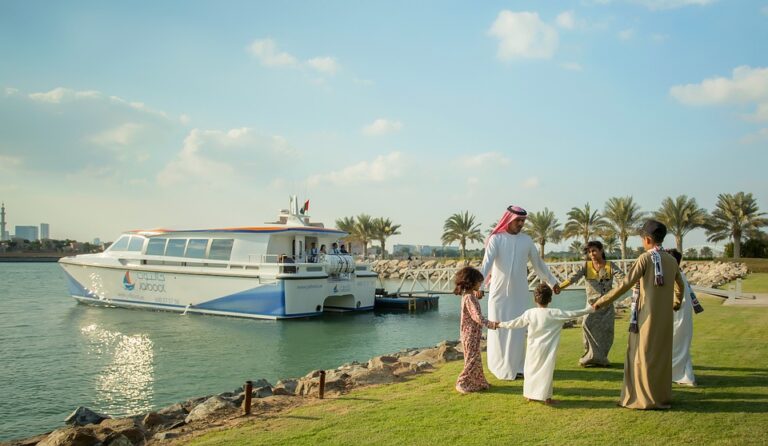
[ad_1]
The Gulf region has long been a popular destination for travelers seeking sun, sand, and luxury. From the stunning beaches of Dubai to the cultural wonders of Oman, the Gulf has much to offer to visitors. However, with the increase in global tourism, the environmentally sensitive ecosystem of the Gulf is facing unprecedented challenges. Fortunately, there are ways for travelers to support environmental conservation efforts and ensure that their visit to the Gulf is sustainable and responsible.
One of the biggest environmental threats in the Gulf is the impact of climate change. Rising temperatures and sea levels are putting immense pressure on the delicate ecosystems of the region, including its coral reefs and mangroves. To support environmental conservation efforts, travelers can choose to stay in eco-friendly accommodations that have implemented sustainable practices such as water conservation, renewable energy sources, and waste reduction. Additionally, travelers can participate in beach clean-ups and conservation projects organized by local NGOs and environmental groups to directly contribute to the preservation of the Gulf’s natural beauty.
Another critical issue facing the Gulf is the overuse of water resources. The region is known for its luxury hotels and resorts, which often consume excessive amounts of water for landscaping and recreational facilities. Travelers can support environmental conservation by choosing accommodations that have implemented water-saving measures such as using desalinated water for non-potable uses, installing efficient irrigation systems, and offering guests the option to reuse their towels and linens. Additionally, travelers can reduce their own water consumption by taking shorter showers, turning off the tap while brushing their teeth, and reporting any leaks or water waste to the hotel staff.
In addition to these initiatives, travelers can also support environmental conservation efforts in the Gulf by choosing sustainable transportation options. The Gulf has a well-developed infrastructure for car travel, but the air pollution and carbon emissions from vehicle exhausts are contributing to the degradation of the region’s air quality and natural habitats. To support conservation efforts, travelers can opt for public transportation, carpooling, or cycling, and choose to explore the region on foot or by kayak to minimize their carbon footprint.
Finally, travelers can also support environmental conservation in the Gulf by respecting the local culture and customs. By being mindful of the local wildlife, respecting protected areas, and supporting local businesses that prioritize sustainability, travelers can contribute to the preservation of the Gulf’s unique biodiversity and ecosystems.
In conclusion, sustainable tourism in the Gulf is about making conscious choices that support environmental conservation and minimize negative impacts on the region’s delicate ecosystems. By staying in eco-friendly accommodations, conserving water, choosing sustainable transportation options, and respecting local culture and customs, travelers can help ensure that their visit to the Gulf contributes to the long-term preservation of its natural beauty and resources. As tourism continues to grow in the Gulf, it is vital for travelers to play a role in protecting and sustaining the region’s environment for future generations.
[ad_2]